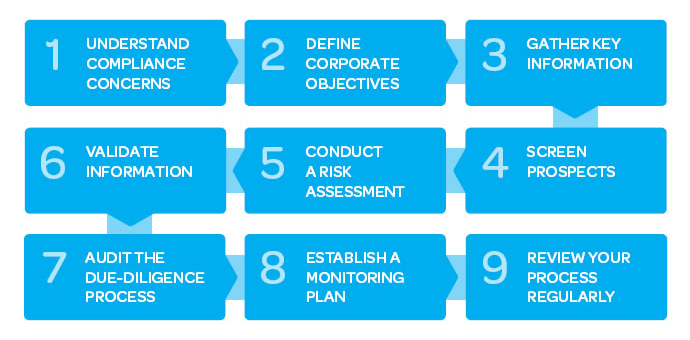


A coffee chain considering partnering with a new coffee bean grower will need to take very different steps than a financial institution considering a new vendor for their online banking program.ĭepending on the type of organization you work for and the size of its value chain, you might undertake any of the following eight types of due diligence: While all due diligence typically takes place at the start of a new business arrangement, what that due diligence requires can vary. Account: Organizations also need to maintain a thorough account of how they will proactively address any potential human rights risks.Prevent and Mitigate: Then, organizations must act in good faith to prevent those risks and/or mitigate any existing or future impacts.Identify and Assess: Organizations are responsible for identifying if their activities might have a human rights impact and assessing the extent of that risk.While they are human rights-specific, they’re also valuable tenets of any effective due diligence program. This document outlines three principles that organizations can follow to ensure their activities don’t compromise human rights. In 2011, the UN issued its Guiding Principles on Business and Human Rights. But it’s also a potential human rights issue. The 3 Principles of Due Diligenceĭue diligence is an essential way for organizations to proactively identify risk.
#Due diligence in tidiness crossword professional
Under certain circumstances, due diligence may mean seeking and obtaining outside expertise from attorneys, accountants, insurance agents, financial experts, tech experts or other individuals with professional or special expertise. In addition to having guidance in written form, due diligence calls for boards to cooperate and collaborate with others. Certain issues may be better addressed by using a checklist to ensure that groups or individuals are giving the issues adequate time and attention. What Is the Purpose of Due Diligence?īusinesses need to have written policies and procedures in place. Due diligence means being proactive, rather than reactive, in response to problems. In the general business sense, due diligence means vetting issues that affect the business thoughtfully and carefully.
#Due diligence in tidiness crossword plus
The three principles of due diligence, plus eight types of due diligence your organization can conduct.Why organizations conduct due diligence.With that definition in mind, you can better understand due diligence. The definition cites ‘research and analysis of a company or organization done in preparation for a business transaction (such as a corporate merger or purchase of securities).’

Merriam-Webster defines due diligence as it pertains to business. Depending on the context in which the term is used, it can hold other meanings - especially for corporations, nonprofits and educational institutions.

The dictionary gives the term 'due diligence' a basic meaning. Yet it can be difficult to understand what due diligence really is and how best to incorporate it into your procedures. Specifically for compliance teams, it comes up when you consider relationships with new vendors and third parties. Used in business, it broadly refers to the process of investigating and verifying information about a company or investment opportunity. Due diligence is a relatively common term.


 0 kommentar(er)
0 kommentar(er)
